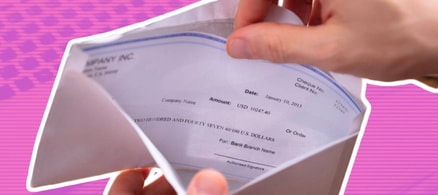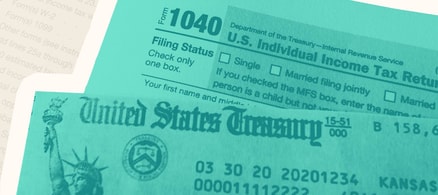Tax on capital gains
Any time you sell an investment for more than you bought it, that’s called a gain. In general, you need to pay taxes on your capital gains. The IRS recognizes two types of capital gains:
- Short-term: These are gains made on investments you’ve held for a year or less. When you pay your investment tax on short-term capital gains, you pay it at your regular income tax rate. It’s part of your regular income.
- Long-term: These are gains on investments you’ve held for more than a year. Long-term capital gains are taxed at a favorable rate. For those in certain tax brackets, there isn’t an investment tax on long-term gains.
More: How to offset capital gains tax on your investments
Taxes on assets
There are some assets, however, whose gains aren’t taxed based on the short- or long-term. Assets like gold coins, collectibles, and certain other assets are taxed at a different rate when they are sold for more than they were bought for.
If you’re selling your investments through a broker, most of them use a “first-in, first-out” method of calculating the cost basis, which is the cost that is used to determine how big your gain is. Your broker will send a tax form at the end of the year detailing how much you made in short-term and long-term capital gains so you know the amount you’ll be taxed on.
What about taxes on cryptocurrencies?
Interestingly, gains on cryptocurrencies are similar to other long-term and short-term capital gains. You need to keep track of the value of the cryptocurrency when you bought it, then pay an investment tax on the gains. However, if you’ve held the cryptocurrency for more than a year, you can take advantage of the long-term capital gains rate.
There are certain times when cryptocurrencies are taxed including:
- When you trade them for fiat currency (like U.S. dollars)
- If you convert your crypto to a different type of crypto
- You buy goods or services with a cryptocurrency
- You receive interest on cryptocurrency transactions
The most important thing is to keep track of the market value of the crypto when it was bought or sold.
More: Tax guide to cryptocurrency investments
Taxes on dividends
A dividend is a payout from a company’s profits. It’s an extra payment made to shareholders, based on the shares they hold. When you receive dividends, you have to pay tax on investment income.
- In general, you pay taxes on dividends in the year you receive them. However, if the dividends are “qualified,” from a company based in the United States or one that meets other requirements set forth by the IRS, you pay a set rate rather than your usual marginal rate. In order to receive this favorable tax rate, you need to meet the holding requirements set by the IRS.
- You pay taxes on dividends the year you receive them even if you reinvest them. If you have a dividend reinvestment plan (DRIP) — and your dividends are used to automatically buy more shares of a company — you will still pay taxes on the dividends, even if you didn't directly end up with cash in your account.
Taxes on interest
When you receive interest from a bank account or a bond, that’s usually considered regular income. The interest is added to your regular income, and you pay taxes at your marginal tax rate.
Municipal bonds are the main exception to taxes on investments that bear interest. If you invest in state and local bonds, you generally don't pay federal taxes on the income. Although you pay federal taxes on Treasuries, you won’t have to pay a state income tax on the interest earned on Treasury securities.
More: Tax-efficient investing
Taxes on mutual funds
Taxes on investments get a little more complicated when mutual funds are involved.
- Because a mutual fund is a collection of investments, you could end up with a tax bill based on what happens inside the mutual fund. For example, dividends received from stocks held in the fund, or interest from bonds held in the fund will be taxed as gains. Once again, even if the interest or the dividends are used to buy more shares of the mutual fund, you will still have to pay the appropriate taxes on that investment income.
- When assets are sold within a mutual fund and a gain is realized, the mutual fund shareholders end up paying taxes on those gains. A mutual fund with a high turnover can mean a higher tax bill for shareholders, especially if the holdings are in the fund for less than a year.
- Finally, when you sell your mutual fund shares, you will pay taxes on any gains you make, based on whether they’re short-term or long-term. You have to be aware of what’s going on inside the mutual fund, as well as the capital appreciation that your shares experience.
More: Paying taxes on investments 2023 guide
Taxes on investments in a retirement account
What happens, though, if you hold your investments in a retirement account like a 401(k)? Here, the taxing is a little bit different depending on the type of retirement account you have.
- In general, you aren’t taxed when you buy and sell assets inside your retirement account. For example, if you sell shares of a stock fund and use the gains to buy shares of a bond fund as you rebalance your retirement portfolio, you won’t have to pay taxes for the year that you sold.
- Some investors choose to hold Treasury securities in their retirement accounts while keeping municipal bonds (which don’t incur federal income taxes) in taxable accounts.
- However, that doesn’t mean that you won’t pay taxes on investment in a 401(k) or another retirement at some point.
- When you invest in a traditional 401(k) or IRA, you use pre-tax dollars, receiving a tax benefit today. During retirement, you have to pay taxes on your withdrawals. So while you don’t have to pay capital gains taxes when you perform transactions in your retirement account, you do end up paying taxes at your regular tax rate when you withdraw money from the account.
More: Pre-tax investments
Taxes on Roth accounts
If you decide to invest using a Roth IRA or Roth 401(k), you don’t pay taxes when you withdraw. Instead, you make contributions with after-tax dollars, meaning you don’t get a tax benefit today. However, the benefit is that your investments grow tax-free and you don’t have to pay taxes on the gains.
Taxes on the sale of a house
When you sell your house to a gain, you’re expected to pay an investment tax. However, you can reduce the amount of your gain if you’ve made home improvements.
Additionally, the IRS allows an exemption on the capital gains tax paid on your home. If you're single, the first $250,000 in gains is exempt from the sale of a primary residence. If you're married, it's the first $500,000 in gains.
Tax losses and wash sales
What if you experienced a loss on your investment instead of a gain? In that case, you can actually offset some of your investment gains — or even a portion of your income.
When you lose money on an investment, you can subtract that amount from another investment gain and reduce your tax bill. Additionally, if you have more investment losses than gains, you can deduct those from your taxable income.
However, you have to be aware of the IRS wash sale rule. This only allows you to deduct capital losses if you don’t buy substantially the same investment again within 30 days.
Bottom line
Don’t forget you have to pay taxes on investments. Save the forms you receive from your brokers and pay attention to the laws.
Once you've received all of your necessary forms, top tax software like H&R Block can help you calculate your investment taxes with minimal hassle. Or you can talk to a tax professional to make sure that you’re figuring the right tax amount on your investment income.








